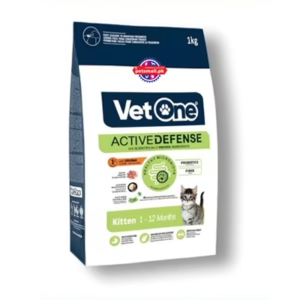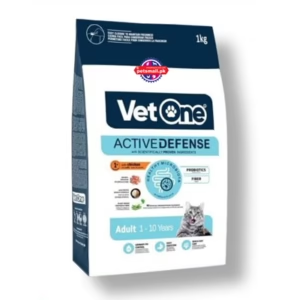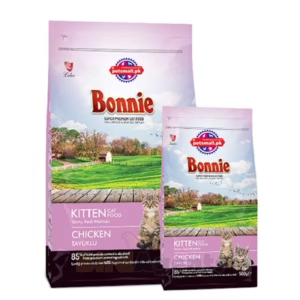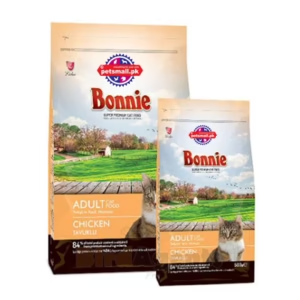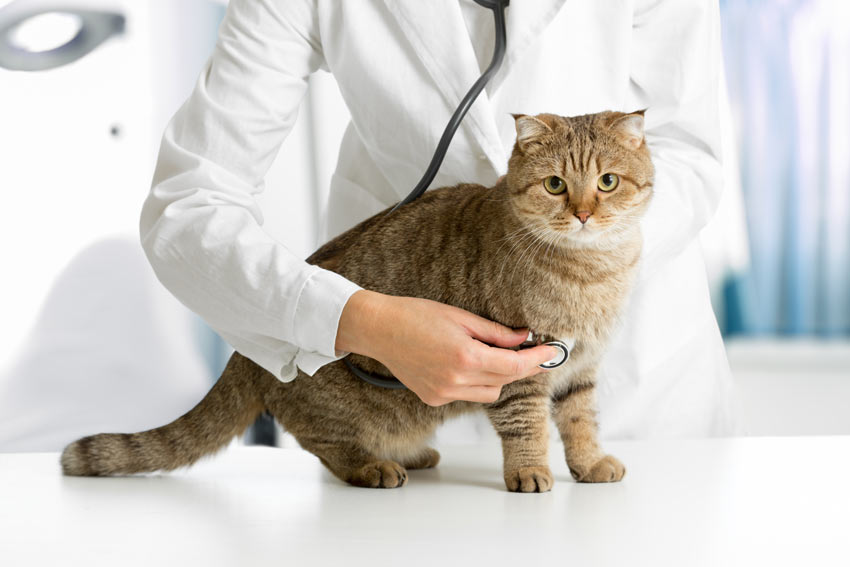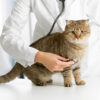Call / Whatsapp 0301-7475573 , 0313-4343476
The best discounts this week
Every week you can find the best discounts here.
Vet One Kitten Dry Cat Food (1kg)
Vet One Adult Dry Cat Food (1kg)
Bonnie Super Premium Kitten Dry Cat Food-Chicken
Bonnie Super Premium Adult Dry Cat Food-Chicken
Mr Pet Fruit Meat Organic Dry Cat Food
Petline Super Premium Adult Dry Cat Food-Sea Food Selection
Cats are some of the most independent and low-maintenance pets, but that doesn’t mean they’re immune to health problems. As a cat owner, it’s essential to keep an eye on your feline friend’s well-being to ensure they’re living their best and healthiest life. While cats are masters of hiding their discomfort, knowing what health issues to watch out for can make all the difference in their care.
In this blog, we’ll walk you through some of the most common cat health issues, how to spot them, and what you can do to help your kitty stay healthy and happy.
1. Dental Disease
Just like humans, cats are susceptible to dental problems. The most common dental disease in cats is periodontal disease, which occurs when plaque and tartar build up on the teeth, leading to inflammation and infection of the gums. Left untreated, it can cause pain, tooth loss, and even damage to internal organs due to bacteria entering the bloodstream.
Symptoms to Watch For:
- Bad breath
- Difficulty eating or chewing
- Excessive drooling
- Swollen or bleeding gums
What You Can Do:
Regular dental care is crucial for preventing dental disease. Brushing your cat’s teeth, offering dental treats or toys, and scheduling annual veterinary check-ups can help keep their mouth healthy.
2. Obesity
Obesity is a growing concern among domestic cats. Overfeeding, lack of exercise, and a sedentary lifestyle can lead to weight gain, which puts extra strain on their joints, heart, and other organs. Obesity can also shorten a cat’s lifespan and increase the risk of other health issues like diabetes, arthritis, and heart disease.
Symptoms to Watch For:
- Difficulty jumping or climbing
- Visible fat around the abdomen or chest
- Lethargy or reluctance to play
What You Can Do:
To combat obesity, monitor your cat’s weight and adjust their diet accordingly. Providing a balanced, portion-controlled diet and ensuring they get regular exercise through play and stimulation can help maintain a healthy weight.
3. Feline Lower Urinary Tract Disease (FLUTD)
FLUTD refers to a variety of urinary tract problems, including urinary infections, bladder inflammation, and even blockage of the urethra. Cats suffering from FLUTD may find it difficult to urinate or may urinate outside their litter box. This condition can be painful and, in severe cases, life-threatening if left untreated.
Symptoms to Watch For:
- Frequent attempts to urinate, often in small amounts
- Straining or crying out when urinating
- Blood in urine
- Litter box avoidance
What You Can Do:
Ensure your cat always has access to clean, fresh water and a clean litter box. Providing a balanced diet, reducing stress, and ensuring they maintain a healthy weight can help prevent urinary issues. If your cat shows any of the symptoms listed above, seek veterinary care immediately.
4. Feline Diabetes
Diabetes in cats occurs when the body can no longer produce enough insulin or use it effectively. It’s a serious condition that requires proper treatment to manage. Cats with diabetes often suffer from increased thirst, frequent urination, and weight loss.
Symptoms to Watch For:
- Increased thirst or appetite
- Frequent urination
- Weight loss despite normal eating habits
- Lethargy
What You Can Do:
If your cat is diagnosed with diabetes, managing their diet and insulin levels is crucial. Your vet will guide you on the best course of treatment, which may include insulin injections and a carefully controlled diet.
5. Arthritis
Arthritis is common in older cats and can cause pain, stiffness, and reduced mobility. Cats are incredibly good at hiding pain, so it’s important to notice subtle signs like decreased activity, difficulty jumping, or changes in behavior.
Symptoms to Watch For:
- Reluctance to jump or climb stairs
- Changes in walking or movement
- Decreased grooming habits
- Hiding or becoming more reclusive
What You Can Do:
While arthritis cannot be cured, it can be managed. Consult your vet about anti-inflammatory medications or supplements like glucosamine and chondroitin, which can help with joint health. Providing soft bedding and easy access to food, water, and litter boxes can also make your cat more comfortable.
6. Hairballs
Hairballs are a common issue for cats, especially those with long fur. When cats groom themselves, they swallow hair, which can accumulate in the stomach and form hairballs. While occasional hairballs are normal, frequent or severe hairballs may indicate an underlying health issue.
Symptoms to Watch For:
- Vomiting or retching
- Coughing or gagging
- Decreased appetite or lethargy
What You Can Do:
Regular grooming, especially for long-haired breeds, can reduce the amount of hair your cat swallows. You can also feed your cat a specialized diet to help with hairball management. If hairballs become frequent or your cat seems to be in distress, consult your vet.
7. Parasites: Fleas, Ticks, and Worms
Fleas, ticks, and worms are common external and internal parasites that can cause serious health issues for cats. Fleas can lead to skin infections and anemia, while ticks can transmit diseases. Worms, such as roundworms and tapeworms, can cause gastrointestinal issues and malnutrition.
Symptoms to Watch For:
- Scratching or biting at the skin
- Hair loss or scabs
- Vomiting, diarrhea, or weight loss
- Lethargy
What You Can Do:
Regular parasite prevention is key. Use flea and tick preventatives, and deworm your cat as recommended by your vet. Keeping your cat indoors or in a controlled environment can also reduce the risk of exposure to parasites.
8. Chronic Kidney Disease (CKD)
Chronic Kidney Disease is common in older cats and can lead to kidney failure. It develops gradually and may not show signs until the disease is quite advanced. Early detection is crucial for managing the condition.
Symptoms to Watch For:
- Increased thirst and urination
- Loss of appetite or weight loss
- Vomiting
- Lethargy or weakness
What You Can Do:
If your cat is diagnosed with CKD, they may need a special diet, medications, and regular check-ups to monitor kidney function. Ensuring your cat stays hydrated and maintains a healthy weight can help slow the progression of the disease.
9. Respiratory Infections
Respiratory infections in cats, often caused by viruses like Feline Herpesvirus or Feline Calicivirus, can lead to symptoms similar to the common cold in humans. These infections can be mild or severe, and in some cases, they may lead to chronic respiratory issues.
Symptoms to Watch For:
- Sneezing or coughing
- Runny nose or eyes
- Loss of appetite
- Difficulty breathing
What You Can Do:
Ensure your cat gets vaccinated against respiratory diseases. If your cat is showing signs of a respiratory infection, consult your vet to get proper treatment. Keeping your cat indoors can also prevent the spread of respiratory diseases.
Conclusion
While cats are generally independent creatures, their health requires attentive care and monitoring. By recognizing the signs of common health issues early, you can ensure your cat receives the proper treatment and care they need to live a long, happy life. Regular vet visits, proper nutrition, exercise, and lots of love are all part of keeping your furry friend in good health.
If you notice any unusual behaviors or symptoms in your cat, don’t hesitate to contact your veterinarian. After all, your cat’s health and happiness are worth every effort.
Have you had to deal with any of these health issues with your cat? Share your experience in the comments below!

